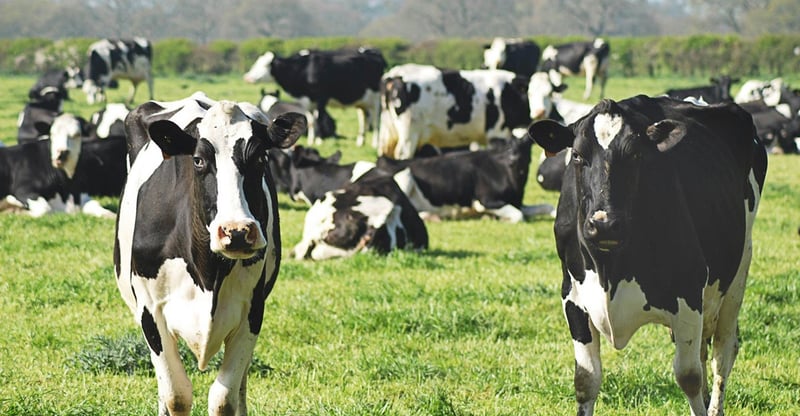Kwazulu-natal Beefs Up Foot And Mouth Defence With Expanded Control Areas
Written by: BizCommunity Editor Save to Instapaper
According to a departmental report on Monday, the outbreaks of FMD in KwaZulu-Natal have not been successfully contained, with new cases recently detected in the Newcastle area.
“The disease has now spread beyond the initial Disease Management Area (DMA) declared in 2021, when outbreaks of the SAT2 FMD strain first emerged in the province,” the department said.
The department said the latest measure aims to control the movement of cloven-hoofed animals (cattle, sheep, and goats) and their derived products in affected areas.
“No cloven-hoofed animals, their products, or genetic material may be moved from, to, or within the DMA unless authorised by a state veterinary permit and in full compliance with the stipulated conditions of such [a] permit. The updated DMA boundaries will be officially declared in the Government Gazette in the coming days,” the department said.
The DMA has now been extended to local municipalities including Big Five Hlabisa; Mtubatuba; Nongoma; Ulundi; Umhlabuyalingana; Jozini; Pongola; Abaqulusi; Mfolozi; uMhlathuze; Mthonjaneni; Nqutu; Nkandla; uMlalazi; and Mandeni Local Municipality.
Partial municipalities (specific portions covered by the DMA) include:
- Emadlangeni: South of R34 from R33
- Newcastle: South of R34 up to and east of N11
- Dannhauser: East of N11 and north of R68
- Endumeni: North of R68 and east of R33
- Msinga: East of R33
- UMvoti: East of R33 up to R74 and north of R74
- Maphumulo: Northeast of R74
- Ndwedwe: East of R74
- KwaDukuza: Northeast of R74 up to the N2 and west to the N2 up to Mandeni.
Movement control measures and responsibility
The department has reiterated that movement control measures, originally declared in October 2022, remain in place nationwide, and “these control measures have been included again in the new Government Gazette notice".
“These measures require that: any movement of cattle, sheep, or goats must be accompanied by an owner declaration confirming the animals’ origin and health status; and that the recipient of the animals at the destination must provide a signed undertaking ensuring the animals will be isolated for at least 28 days before integration with the main herd,” the department explained.
The department emphasised that Section 11 of the Animal Diseases Act, 1984 (Act No. 35 of 1984), places a legal obligation on all animal owners and farm managers to take all reasonable steps to prevent their animals from becoming infected and to prevent the spread of diseases.
Essential biosecurity measures include:
- Limiting or postponing the introduction of new animals onto farms.
- Only introducing animals from known, disease-free sources with a valid health declaration.
- Preventing direct contact between farm animals and those outside the farm.
- Maintaining secure farm boundaries and restricting access to livestock areas.
- Minimising human and vehicle access to farms, with proper disinfection protocols in place.
Reporting
FMD is classified as a controlled animal disease under the Animal Diseases Act, 1984 (Act No. 35 of 1984), which mandates specific control measures, such as isolation and movement restrictions, enforced by Veterinary Services.
“Any suspicious clinical symptoms, such as salivation, blisters in the mouth, limping, or hoof lesions, should be reported immediately to the local State Veterinarian, and such animals must not be moved under any circumstances,” the department emphasised
We submit and automate press releases distribution for a range of clients. Our platform brings in automation to 5 social media platforms with engaging hashtags. Our new platform The Pulse, allows premium PR Agencies to have access to our newsletter subscribers.
Latest from
- Google Invests In Africa’s Digital Future With Cable Infrastructure And AI Tools For Universities
- Reframing Africa’s Global Identity Discarding Outdated Labels To Embrace Local Realities And Strengths
- Forecourt Retail Emerges As Untapped Growth Engine Highlighting Rising Importance Of Convenience
- Engage Africa Conference To Empower Finance Professionals With AI ESG And Leadership Insights
- Amazon Celebrates Heritage Month By Showcasing Local Creativity At Shop Mzansi Pop Up Experiences
- Smego Pitchathon Awards R4.2 Million To 14 SMEs Showcasing Innovation And Growth Potential In South Africa
- Breakthrough Trial Suggests Higher Dose Of Semaglutide May Deliver Safer And Stronger Weight Loss Results
- African Manufacturers Push For Extension Of US AGOA Trade Programme Amid Uncertainty Over Renewal
- Canex Creations Incorporated Strengthens Leadership With Appointment Of Osahon Akpata As CEO
- Woman Leadership In Focus As Katlego Mahura Shares Six Key Lessons From Leading An Agency
- Republic Of Congo Strengthens Energy Future With Focus On Local Content At 30th Vendredis De Carrefour
- Nigeria Mining Week Strengthens Industry Ambitions With 10th Anniversary Celebration In Abuja
- South Africa Drives Circular Economy Shift With New Project Targeting Plastics And Packaging Waste
- Mentorship Transforms South Africa’s Wine Industry With 107 Black Owned Brands And 81 Black Owned Farms
- Safrea Stands Against Abuse Of Journalists Reaffirming Commitment To Media Rights And Protection
The Pulse Latest Articles
- Designing The Future Of Water: Hansgrohe And Axor Are Making Every Drop Count (September 16, 2025)
- Classic South African Desserts Reimagined For Modern Refreshment And Shared Tables (September 16, 2025)
- Beyond The Paycheque: A Practical Guide To Executive Compensation In Sa (September 16, 2025)
- Booty, Buff & Glow – Gloot’s Juiciest Drop Just Landed! (September 12, 2025)
- History In Motion: Springbok Women Embrace World Cup Quarterfinal Challenge (September 11, 2025)
